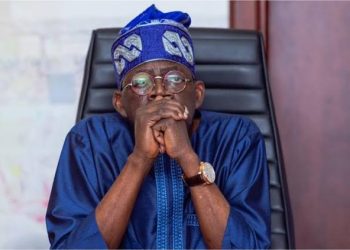President Muhammadu Buhari has finally signed the Electoral Act Amendment Bill 2022 into law on Friday after months of delay.
Recall that the National Assembly had transmitted the Electoral Act Amendment Bill 2021 to the president on January 31, a second time, having reportedly revised the bill, which he withheld his assent to for some noted reasons.
A signing ceremony was held at the federal executive council (FEC) chamber in the presidential villa in Abuja on Friday.
Senate President Ahmad Lawan, Femi Gbajabiamila, speaker of the house of representatives, and Kayode Fayemi, chairman of the Nigeria Governors Forum (NGF) are among the dignitaries present at the ceremony.
The legislation was transmitted to the president on January 31 after both chambers of the national assembly had reworked it.
Buhari had initially rejected the bill after the national assembly made direct primary compulsory for political parties in the country.
The president said the provision “violates the spirit of democracy”.
It was on that basis the senate and house of representatives reworked the bill to provide for indirect and direct primary, as well as consensus candidates.
With the signing of electoral bill, Parties are now at liberty to use any of the three aforementioned options to elect their candidates for any election that will be organised by the Independent National Electoral Commission (INEC).
Electronic transmission of election results is part of the new provisions in the bill.
This development will require INEC to immediately issue a Notice of Election containing new dates for the 2023 general elections.









